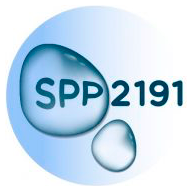Our Mercator Fellow

Rohit Pappu
Gene K. Beare Distinguished Professor of Engineering
Washington University in St. Louis
Department of Biomedical Engineering in the McKelvey School of Engineering
One Brookings Drive
Campus Box 1097
St. Louis, MO 63130-4899
Get to know his professional background
Academic Positions
January 2019 –current: Director of CSELS, Center for the Science and Engineering of Living Systems, Washington University in St. Louis
March 2015–current: Edwin H. Murty Professor of Engineering, McKelvey School of Engineering, Washington University in St. Louis
September 2012–December 2018: Director, Center for Biological Systems Engineering, Washington University in St. Louis, School of Engineering & Applied Sciences
January 2013 –January 2018: Co-Director, Center for High Performance Computing, Washington University in St. Louis
January 2011 –current: Professor, Department of Biomedical Engineering, Washington University in St. Louis, School of Engineering & Applied Sciences
March 2007 –current: Member, Hope Center for Neurodegenerative Disorders, Washington University School of Medicine
July 2007 –December 2010: Associate Professor, Department of Biomedical Engineering, Washington University in St. Louis, School of Engineering & Applied Sciences; Adjunct Associate Professor, Department of Biochemistry & Molecular Biophysics, Washington University School of Medicine
February 2009 –August2010: Director, Center for Computational Biology, Washington University School of Medicine
May 2002 –August 2010: Member, Center for Computational Biology, Washington University School of Medicine
September 2001 –June 2007: Assistant Professor, Department of Biomedical Engineering, Washington University in St. Louis, School of Engineering & Applied Sciences; Adjunct Assistant Professor, Department of Biochemistry and Molecular Biophysics, Washington University School of Medicine
Non-academic Affiliations
January 2019 –current: Member, Scientific Advisory Board, Dewpoint Therapeutics, Boston, MA and Dresden, Germany
Education and Training
Postdoctoral Scientist, 1998-2001
Department of Biophysics and Biophysical Chemistry, Johns Hopkins University, School of Medicine, Baltimore, MD; Mentor: Professor George D. Rose
Postdoctoral Scientist, 1996-1998
Department of Biochemistry and Molecular Biophysics, Washington University in Saint Louis, School of Medicine, St. Louis, MO; Mentor: Professor Jay W. Ponder
Ph.D., Biological Physics, 1992-1996
Department of Physics and Astronomy, Tufts University, Medford, MA
Advisor: Professor David L. Weaver (deceased), Thesis: Algorithms for modeling folding pathways of proteins.
M.S., Solid State Physics, 1990-1992
Department of Physics and Astronomy, Tufts University, Medford, MA
B.Sc., Honors in Physics, Mathematics, and Electronics, 1986-1989, St. Joseph’s College, Bangalore University, Bangalore, India
Professional Societies
- Member, American Association for the Advancement of Science (AAAS)
- Member, American Chemical Society(ACS)
- Member, American Institute of Medical and Biological Engineers (AIMBE)
- Member, Biophysical Society(BPS)and subgroups on Intrinsically Disordered Proteins (IDPs) and Biopolymers In Vivo(BIV)
- Member, The Protein Society(TPS)
- Member, Sigma Xi, The Scientific Honor Society
Learn about his research
Our research is focused on four topics: the molecular basis of neurodegeneration in Huntington’s disease (HD) and related disorders, phase transitions that lead to protein and RNA condensates driven by multivalent molecules, the biophysics of intrinsically disordered proteins, and design of responsive, protein-based biomaterials. Our work is driven by a blend of multiscale computer simulations, adaptations and developments of polymer physics theories, new ideas regarding the physics of living systems, in vitro and in cell experiments, and collaborations that enable molecular and cellular level investigations.
Intrinsically disordered proteins (IDPs): These proteins are abundant in eukaryotic proteomes and are implicated in important cellular functions that underlie transcriptional regulation and signal transduction. We have developed and used novel combinations of polymer physics theories, molecular simulations, and biophysical experiments to provide definitive descriptors for the relationships between information encoded in IDP sequences and their conformational properties. We are using de novo sequence design to modulate conformational properties of IDPs and quantify the impact of these changes on functions of specific IDPs and the distinct cellular processes they control.
Neurodegeneration: We work on connecting the driving forces for and the mechanisms of polyglutamine aggregation and phase separation to intracellular interactions that lead to neurodegeneration in HD and other polyglutamine expansion disorders. An emerging focus is on the modulation of aggregation and phase behavior by endogeneous networks of protein-protein interactions.
Phase transitions and intracellular compartmentalization: We have considerable interest in the problem of phase transitions that are controlled or influenced by multivalent proteins and RNA molecules. These phase transitions include phase separation, sol-gel transitions, the formation of liquid crystals, and the design of novel, stimulus responsive biomaterials. We are developing multiscale, multiresolution methods to understand the driving forces for, mechanisms of, and functions associated with membraneless organelles, also known as biomolecular condensates, that form as the result of phase transitions. This problem has direct relevance to spatiotemporal organization and information transduction within cells.
Molecular Engineering: We are building on our work pertaining to phase transitions and IDPs to develop, prototype, and deploy computational methods to predict phase behavior from amino acid sequence and advance the design of responsive peptide and protein-based biomaterials.

